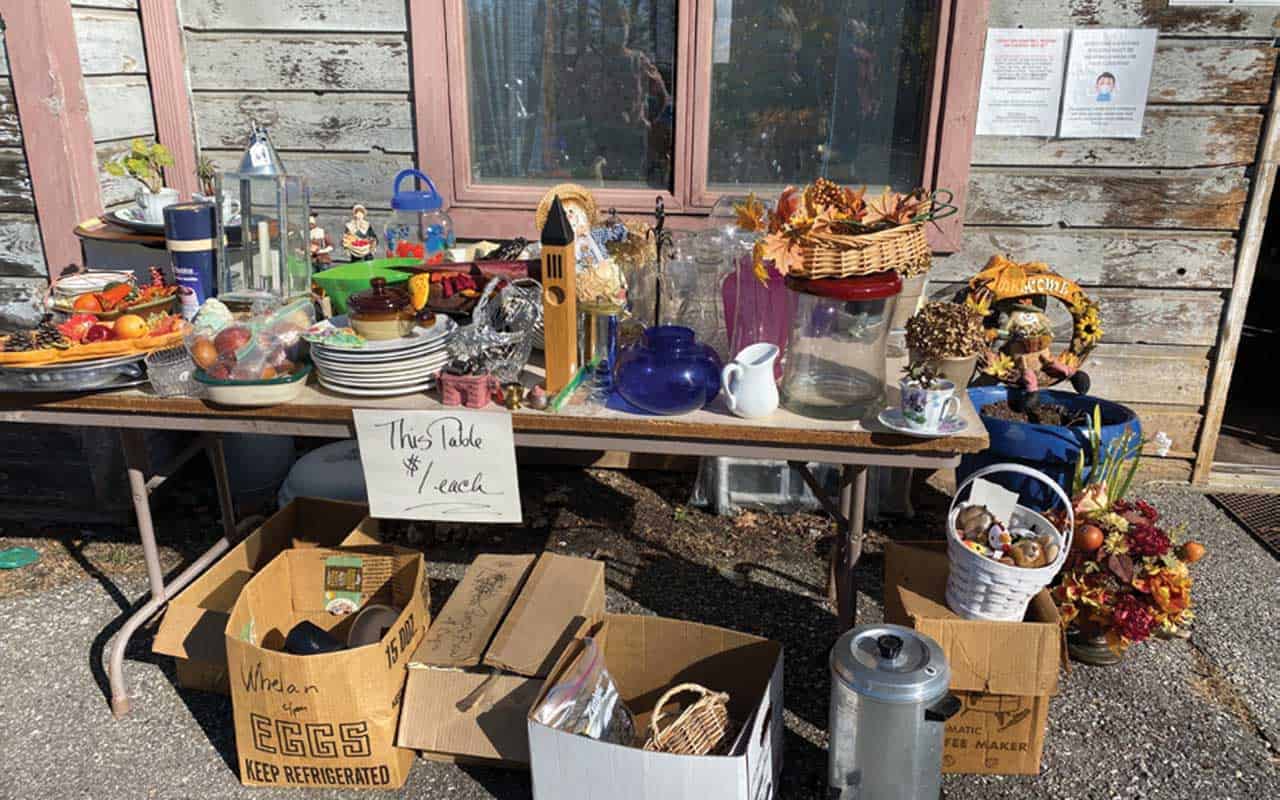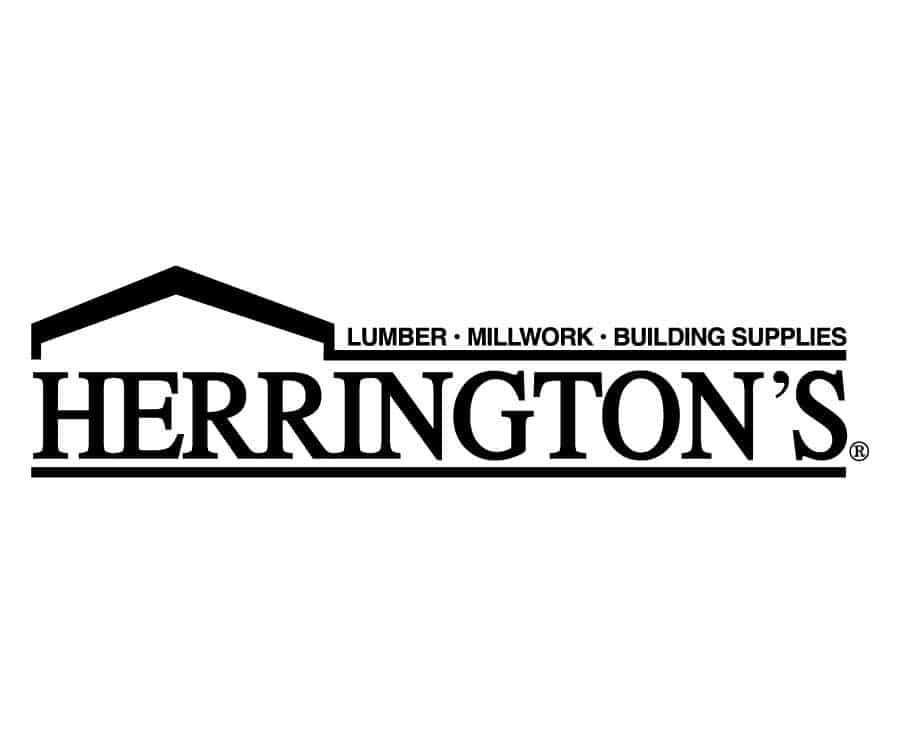Main Street Business

What a Deal
Main Street Magazine’s monthly business column is usually an interview with an entrepreneur or the executive director of a regional not-for-profit. December’s subject, just in time for Christmas shopping, is a conversation with the staff, volunteers, and customers of a thriving not-for-profit thrift store that has always operated as a meeting place and service to everyone in our community.
The Bargain Barn in Sharon, CT, has been around for over 60 years. Behind the grey clapboard “Good Neighbors” building on Low Road, near the bank, liquor store, and Sharon Market, the “Barn” provides an easy, satisfying way to pass along clothing and household goods with a tax deduction, and, at the same time, an ever-changing, low-priced shopper’s heaven. You never know what you might find at the Bargain Barn – designer clothing worn once for a wedding, childrens’ toys, coffee table books, or a warm winter coat at a very low price. It has become a community gathering place with regular customers stopping by to check out the latest merchandise and socialize. It is a treasured member of the community for the benefit of everyone.
The Bargain Barn was originally created as a fundraising operation of Sharon Hospital. In 2002, Sharon Hospital became a for-profit entity and the Bargain Barn secured 501(c)3 status with the Health Care Auxiliary. When the Health Care Auxiliary dissolved its charitable status in 2015, the doors of this beloved institution were set to close permanently when Robin Hood Radio came to the rescue. Marshall Miles and Jill Goodman of Tri-State Public Communications, a registered not-for-profit 501(c)3, stepped in to supply the necessary not-for-profit status and management oversight. Funds raised now go to support Tri-State Public Communications, which operates the only not-for-profit media outlet based in our immediate region. In an interview with Main Street Magazine last year, Miles emphasized that Tri-State Public Communications and Robin Hood Radio had assumed responsibility for the store mainly because of its importance to the community.
Thrift is thriving
Thrift stores are a segment of what’s classified as the secondhand market which, overall, is doing much better than traditional retail. Over the next five years thrift store sales are expected to grow 33% at the same time that the broader retail sector will shrink by 15% according to a study done by Thred Up, an online resale site. All generations are embracing buying used or previously owned clothing for both economic and environmental reasons. Buying fast fashion makes Gen Z shoppers actually feel guilty while buying secondhand feels as good as adopting a puppy, reports Thred Up. Consumers have slowly recognized that fashion is one of the most polluting industries on earth. It is estimated that manufacturing one pair of jeans contributes 75 pounds of CO2 to the atmosphere and that it takes 700 gallons of water to make a new T-shirt. The second life of a donated dress reduces CO2 impact by 72%! If everyone wore a thrifted outfit to an event next year it would save an estimated 1.2 billion pounds of CO2. The Bargain Barn offers a better solution to the billions of garments produced each year that end up in landfill.
The business side of a thrift store
The BB, short for the Bargain Barn, can pay the rent, salaries, insurance, and utilities because of its zero cost of goods sold supplied by generous donors. Every donor may request a signed tax receipt and include the estimated tax-deductible value of their donated items for income tax purposes. The Bargain Barn asks not to donate anything you wouldn’t buy or wear yourself and to skip those sweaters with holes!
Summer is the Bargain Barn’s busiest season when our local population expands, but Christmas time is also active with many families choosing to shop for Christmas presents and decorations. Saturdays will find the store packed with second homeowners looking for a bargain on a hand-knit sweater or a cool thing to do. Weekdays have more local, regular customers some of whom come once or twice every week. There are “pickers” who buy cheap and sell to antique and vintage stores, internet merchants who purchase at thrift store prices, mark-up and resell online, and artisans looking for inexpensive materials to remake into something marvelous like a quilt made from silk ties, or cashmere pants for a toddler. There are also costume designers looking for the right addition to a character’s wardrobe or an idea to copy or inspire.
Like any retailer, the Bargain Barn has sales – blow out sales. Recently everything inside the store was 50% off and outside there was a “mega savings” dollar section under a tent with new merchandise added every day. And every shopper who came received a raffle ticket to win local gift certificates. Giving is part of the community-based mission of the Bargain Barn, which helps residents in emergency situations on a take-what-you-need basis. They also contribute coats and blankets to the NECC Teen Midnight Run, sheets and towels to the ASPCA, and children’s clothes and other items to various programs and organizations in need.
The BB’s dedicated staff
The hardworking staff of five and a committed volunteer base is led by Heidi Haskell. Working together they receive and sort donations, price and display merchandise, and run the register. Rapid turnover and low prices make the Bargain Barn a very labor-intensive operation. The Barn is able to accept items year round for all seasons and store off-season goods whether it’s Christmas decorations in July or sandals in January. Clothing is the most popular item, but there’s room for all kinds of housewares from curtains to books and even small appliances, but no big furniture, mattresses, electronics, or anything covered by a warranty.
The “posh” shop, just past the book section, is a separate area reserved for higher priced clothing and antiques. You might find an Armani suit for $50, Staffordshire china plates or a gold chain necklace in the locked case. Haskell estimates there are about 200 sales every week with an average purchase of $15 – not bad for a little thrift store.
The Covid bargain
Covid has affected the Barn in unexpected ways. Initially it was ordered closed as a non-essential service, although many customers felt the barn was very essential. Once it was permitted to open again, many older, long-time volunteers chose to wait until after the pandemic. Today everyone on the floor wears a mask and only one person per car is allowed into the store. People socially distance and surfaces are disinfected frequently. The Thred Up study found that people everywhere are spending more time at home, and are cleaning out their closets – 50% more than they were pre-Covid. The Bargain Barn is one of the few outlets still accepting donations. But before planning a drop off, do check the website to make certain the donation door will be open.
New customers are also appearing. Young professionals have discovered that the Bargain Barn can supply missing items for their new home in the country. They appreciate the low prices, sustainability, and connection to their new community.

The Sharon Bargain Barn is open for shopping Tuesday to Saturday from 10am to 3pm. The donation door at the back is open from 9:30am to 12:30pm. Check the website to confirm at www.thebargainbarnsharonct.com or call 860-364-5202.


